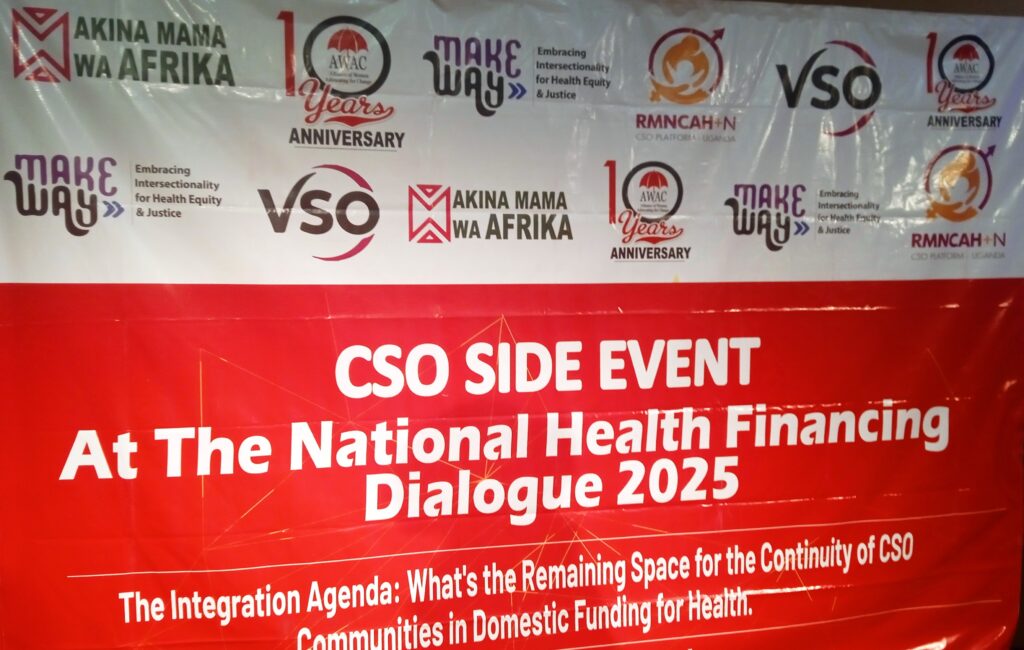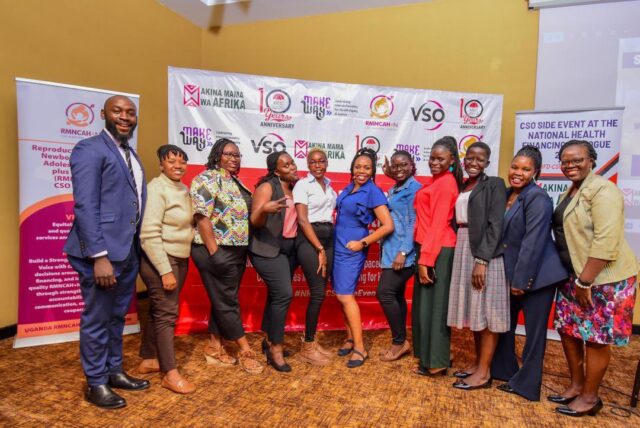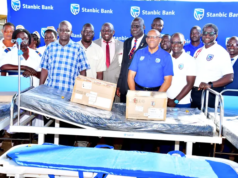Since most health support in Uganda has historically been funded by donors, the recent halt in funding from the U.S. government particularly for programs targeting key populations and highly affected communities has underscored the urgent need for the Ugandan government to increase domestic investment in the health of these vulnerable groups.
This highlights the need for the government to ensure consistent domestic investment in all health programs that address the needs of key populations and affected communities across the country. Such investment is crucial to enabling these groups to access essential healthcare services and reduce the risks to their lives.
While the government is working to address this through its ongoing intervention agenda, it raises concerns about the sustainability of civil society organizations operating in communities and their continued ability to provide healthcare to vulnerable populations.
This prompted civil society organizations to hold a side event at the National Health Financing Dialogue 2025 at speke resort munyonyo where various stakeholders discussed how community-led initiatives can support key populations in improving their health and well-being. The event was held under the theme: ‘The Integration Agenda: What’s the Remaining Space for Civil Society Organizations in Domestic Health Financing?
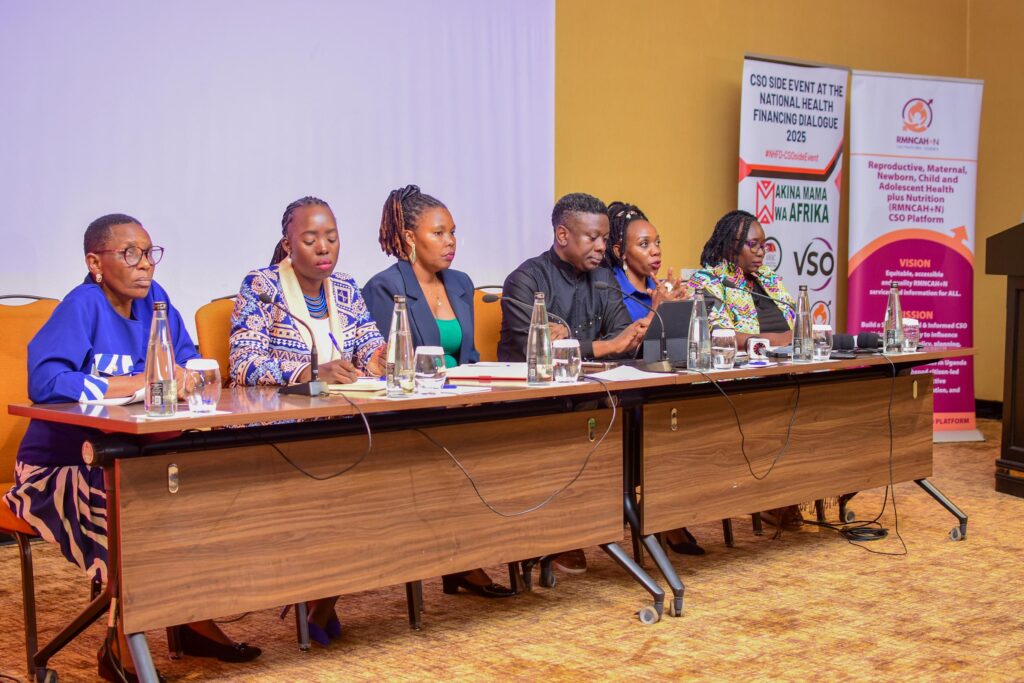
During the side event, stakeholders emphasized the need for civil society organizations (CSOs) to collaborate in making a meaningful impact on the health of key populations by investing in primary health care, youth-friendly services, community engagement, and other essential interventions.
Aliyi Walimbwa from the Ministry of Health stated that the government, through the ministry, is working to ensure that service delivery models are adopted in a way that integrates various health services. This includes aligning financing mechanisms and leveraging organized community structures to mobilize people for these services.
Grace Namataka, Program Officer at Akina Mama wa Afrika, emphasized the need for Uganda to reduce its reliance on foreign aid in order to invest in national priorities. She further highlighted that promoting transparency and encouraging citizen engagement with Parliament are key strategies to help communities track how public funds are being utilized.
Director General of the Uganda Key Population Consortium Richard Lusimbo, expressed the urgent need for health financing and resource mobilization within the national budget to support community organizations. He emphasized that this funding is essential for enabling these organizations to effectively meet the needs of key populations in their communities.
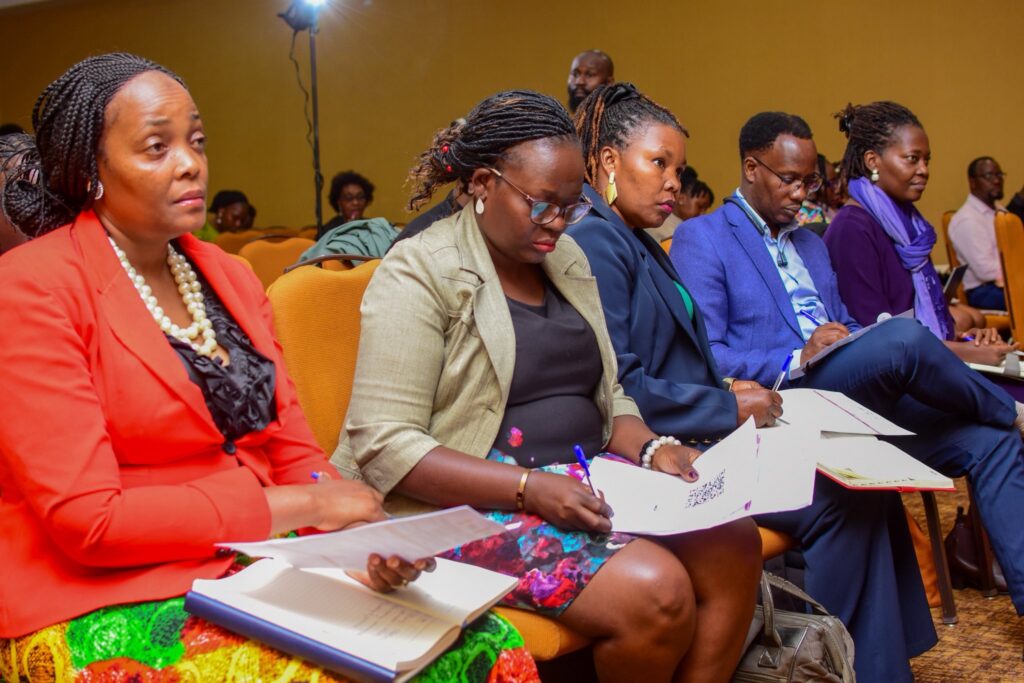
Similarly, Flavia Kyomukama, Director at the National Forum of People Living with HIV/AIDS Networks in Uganda, cautioned the government against prioritizing military spending at the expense of public health. She urged leaders to invest not only in national security but also in the health security of the population, stating, ‘We need to go upcountry to vote when we are healthy.
In the same vein, Macklean Kyomya, Executive Director of the Alliance of Women Advocating for Change, emphasized the importance of using peace and dialogue, rather than force, to achieve solutions. She highlighted the need for vulnerable groups, particularly those affected by HIV, to actively participate in monitoring service delivery and community empowerment efforts for these groups.
Julian Lunguzi, SRHR Coordinator at UNFPA, emphasized that communities must be at the heart of change. He stressed the importance of being proactive in demanding accountability and reporting issues within their communities to ensure effective resource allocation, particularly in health financing.
This side event was convened by Akina Mama Wa Africa and VSO international with their partners the RMNCAH+N platform Uganda, and MakeWay program partners in Uganda
